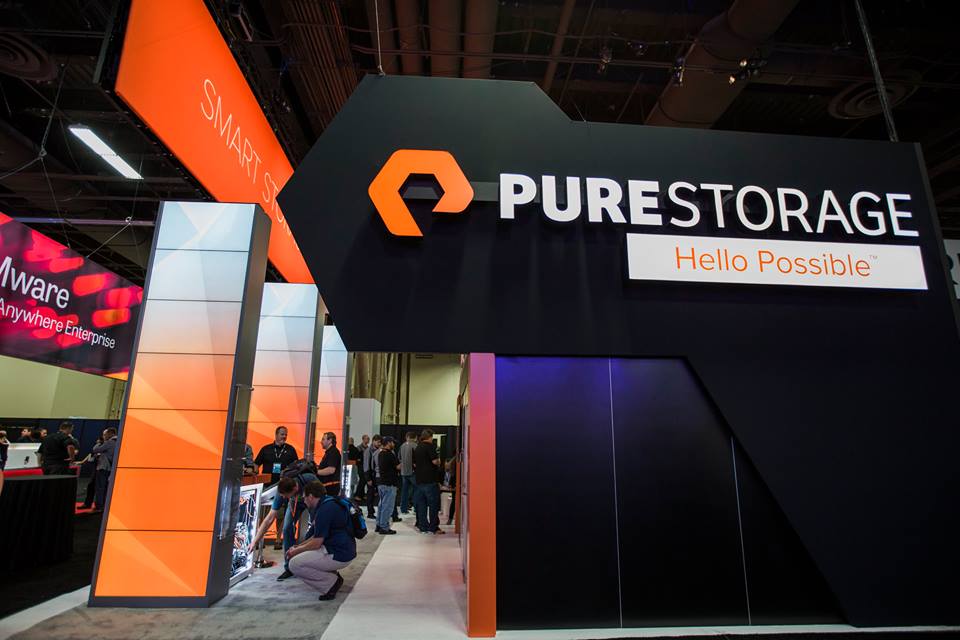
Pure Storage Inc. today unveiled a series of technology updates spanning cyber resilience, hybrid cloud integration and artificial intelligence-driven data management as part of the Enterprise Data Cloud initiative it launched in June.
The announcements, made at the company’s Pure//Accelerate conference, expand capabilities around unifying and securing data across on-premises, public cloud and hybrid environments.
They include deeper partnerships with cybersecurity vendors, expanded cloud-native services, enhanced AI-powered automation, efficiency gains for data-intensive workloads and support for the Model Context Protocol. Pure Storage said the announcements collectively address common issues enterprises face at the intersection of data management, security and AI adoption.
“We’ve taken a unique approach in cyber resiliency to connect the detection signals that exist in the ecosystem for dynamic response,” said Prakash Darji, general manager for digital experience at Pure Storage.
Cyber-aware storage
The focus is on turning the storage layer into an active participant in threat detection and response. Historically, storage systems have been passive components in security architectures; however, Pure Storage asserts that the rising risks of ransomware necessitate direct integration between storage platforms and cybersecurity tools.
A new partnership with CrowdStrike Holdings Inc. brings that company’s Threat-Graph and Falcon Next-Gen Security Information and Event Management software to Pure Storage arrays for real-time threat detection. Automated workflows enable policies to be updated and critical systems to be replicated or isolated before damage spreads.
Integration with Superna Inc.’s Data Security Essentials provides real-time detection of data exfiltration and ransomware behaviors. Compromised accounts can be locked automatically when threats are detected, and security policies are enforced at the storage layer.
Darji said the partnerships go beyond traditional reseller relationships: “We’ve got integrated [intellectual property],” he said. “We allow connections to the relative threat networks across companies bidirectionally.”
Resilience-as-a-servoce
Pure Storage also announced that cyber resilience will be available as a service in early 2026 through a partnership with Veeam Software Corp. The service aims to provide automated recovery and clean data restoration after a cyberattack, backed by service-level agreements.
Another feature, Pure Protect Recovery Zones, will enable customers to provision isolated recovery environments on demand across multiple locations for forensic analysis or business continuity, arriving in early 2027. “We can spin up n level of recovery zones with n level of protection for forensics or isolation in a way that I think no one can,” Darji said.
The Enterprise Data Cloud was introduced as a way for organizations to manage block, file and object data consistently across on-premises and cloud environments. Darji said more than 80% of Pure Storage’s installed base employs the Enterprise Data Cloud in some form. Pure Storage will now extend the model into the public cloud with Pure Storage Cloud, a fully managed, Azure-native block storage service developed in collaboration with Microsoft Corp.
“It’s a fully managed [virtual machine] SQL environment in Azure,” Darji explained. “Pure Storage now is a first-party service directly in that catalog. Just like you could choose Azure Block Storage, you can choose Pure Storage.”
The company said the Azure-native service enables customers to migrate workloads without restructuring them while maintaining enterprise-grade resiliency and performance. The offering is available immediately through the Azure portal.
MCP support
In a bid to expand its scope to include AI-driven automation and integration, Pure Storage also announced its support for the Model Context Protocol. This emerging standard enables information technology systems to exchange information more efficiently than point-to-point integrations. It said support will facilitate tasks such as migrating VMware Inc. workloads to Kubernetes, while preserving security and performance policies.
Integrating MCP into Pure Storage’s Fusion control plane and Portworx container platform enables customers to apply policies consistently across traditional and cloud-native applications. The company is also expanding its Pure1 AI Copilot, which allows IT teams to use natural language queries to manage and troubleshoot storage systems, to work with Portworx. Plans are in place to connect it to MCP servers early next year.
Darji said the MCP is driving a broader trend toward standardizing machine-to-machine communication. “I think MCP will likely emerge as a standard there,” he said.
Finally, Pure Storage announced updates aimed at enhancing performance and reducing infrastructure costs for data-intensive applications, particularly those involving AI workloads.
The company’s Key Value Accelerator caching software now integrates with Nvidia Corp.’s Dynamo to speed up AI inference workloads by up to 20 times while reducing computing and energy consumption, according to Pure Storage.
A new Purity Deep Reduce data reduction engine, scheduled for release in 2027, will utilize pattern recognition to reduce storage footprints without compromising performance.
Pure Storage’s FlashArray portfolio has been expanded with new models supporting both traditional enterprise applications and modern AI pipelines.
Photo: Pure Storage



